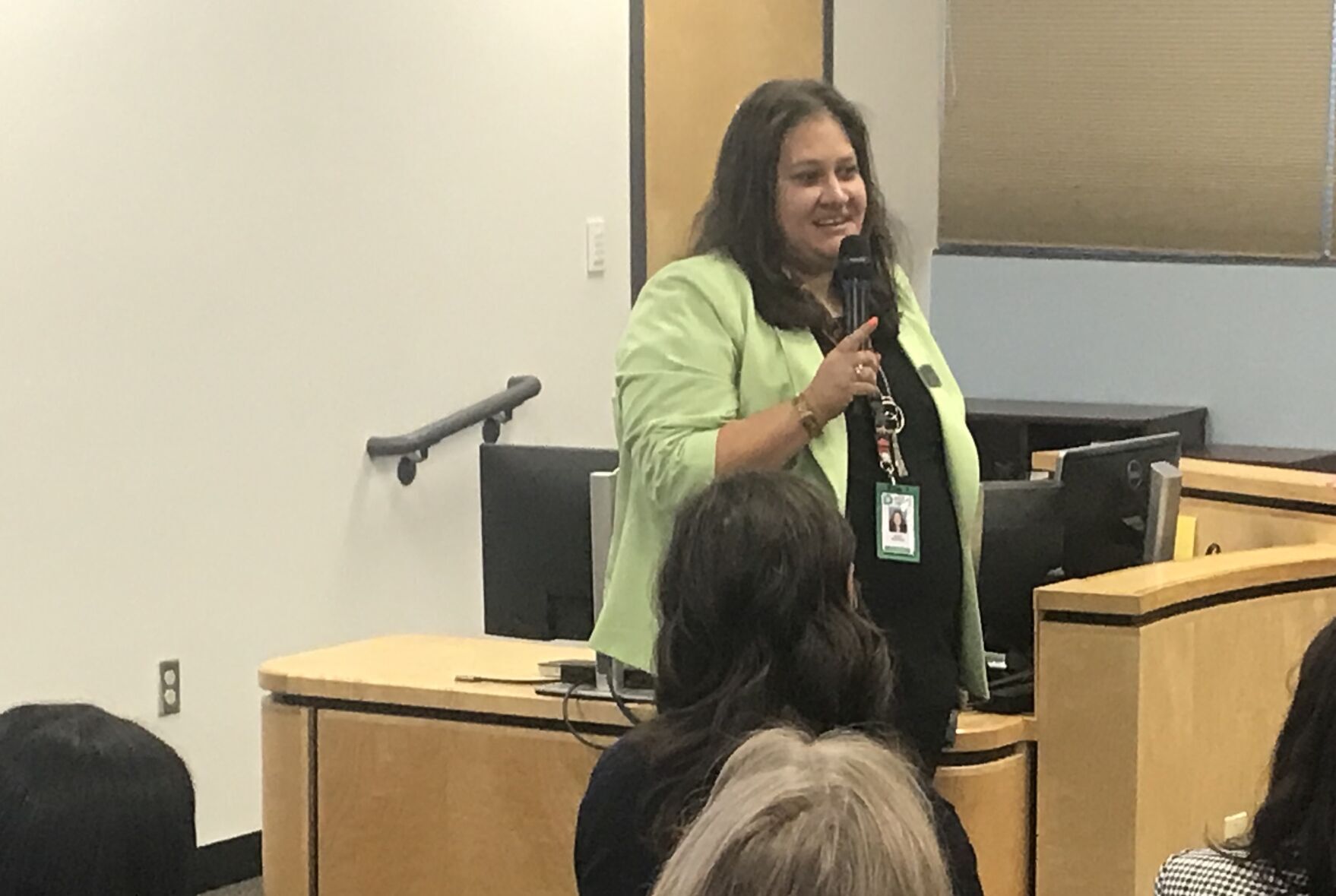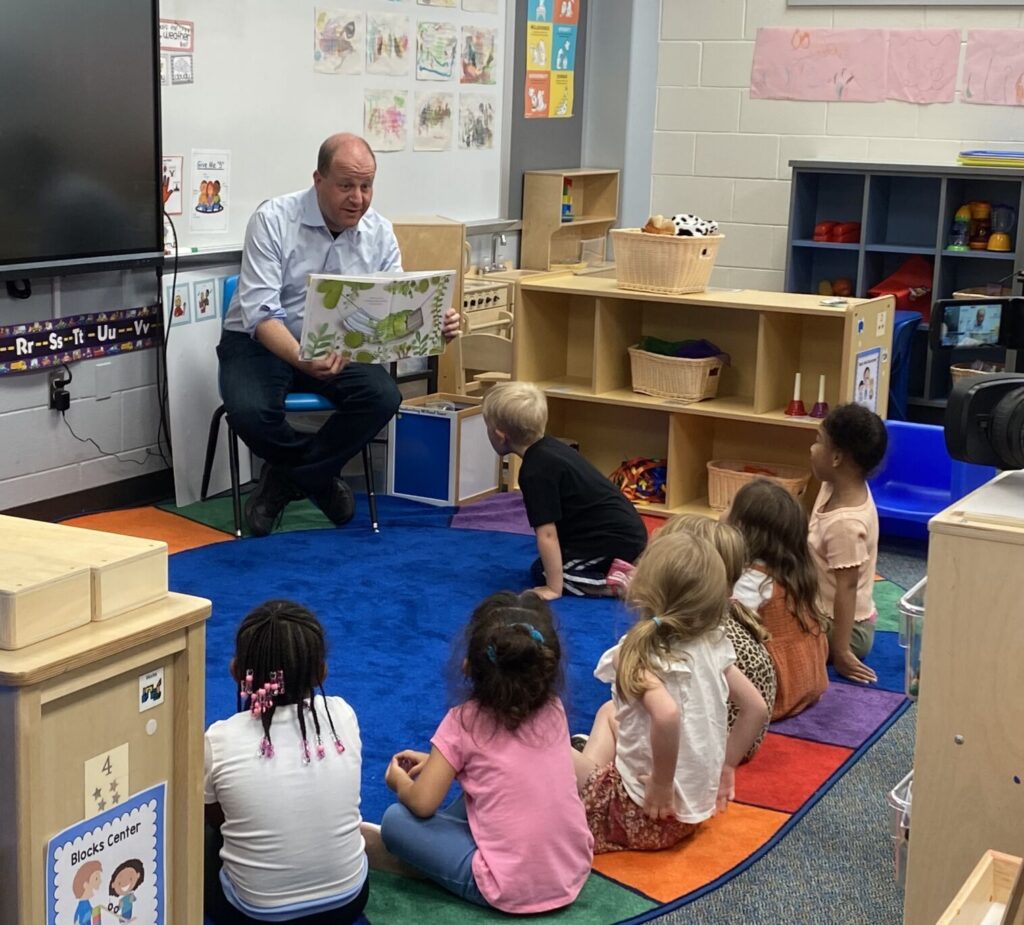Colorado Springs educators, health officials share concerns during fentanyl roundtable meeting

The growing fentanyl crisis in Colorado and across the U.S. is a multifaceted problem, and it will take a multipronged approach to effectively combat it. That was the consensus of the dozens of educators, administrators, care providers and public health officials who attended a roundtable discussion at the school District 11 administration building on Tuesday.
U.S. Rep. Doug Lamborn, R-Colorado Springs, was on hand for the meeting to listen to the attendees’ concerns and to discuss pending federal legislation that would aid them in their fight against the deadly synthetic opioid.
The Protecting Kids from Fentanyl Act, proposed by Lamborn, U.S. Rep. Joe Neguse, D-Lafayette, and several other members of Congress, would allow states to use $140 million in grant funding through the Department of Health and Human Services to educate students on the dangers of fentanyl and other opioids; to purchase Narcan for use in schools; and to train nurses and school personnel to use the opioid antagonist.
Colorado Springs woman pleads guilty in fentanyl death of high school student
“It’s probably the most important emerging health care issue that we have facing us today,” Lamborn said. “It’s imperative that we educate these students not to take these substances in the first place, but if something happens, there is a possible solution or antidote that can help.”
In 2022, 75% of El Paso County opioid deaths involved fentanyl, according to public health data. More than 90% of El Paso County overdose deaths happened before the victim could be taken to a hospital, which suggests that they were either not given Narcan or didn’t receive it in time to revive them, Lamborn said.
A drug that the Centers for Disease Control and Prevention says is up to 50 times stronger than heroin and 100 times stronger than morphine, fentanyl is lethal in extremely small doses and increasingly easy to buy. Additionally, because drug dealers are now selling fentanyl in the guise of other drugs like oxycontin and Xanax, many people are ingesting the deadly drug without knowing it.
That’s what happened to 17-year-old Xavier Gerchow in March 2021, according to his friend Matt Weis, who spoke at Tuesday’s meeting.
“He took what he thought was a Percocet pill to alleviate his pain from basketball practice,” Weis said. “That pill turned out to be 99% fentanyl, and 1% cocaine. And now he’s gone.”
Matt Riviere lost both his sons, A.J. and Stevie, to fentanyl poisoning in a single night in 2021 when they took pills that they believed to be oxycontin.
“Imagine a 737 airliner, fully loaded, going down to the ground every day of the year,” Riviere said. “If that happened in America, it would be front-page news every single day, and it would be on the nightly news every single night. But that’s what’s happening in America right now (with fentanyl deaths).”
Administrators and other officials voiced support for the anti-fentanyl bill, but some suggested that the funds be used for more than just Narcan and education/training sessions.
Wendy Birhanzel, Superintendent of Harrison School District 2, requested a provision that would allow schools to purchase nitrile gloves for drug searches.
“We know that fentanyl is so deadly that when we’re searching backpacks, if someone comes across it, they could (suffer fentanyl poisoning),” said Birhanzel, who also suggested funding for random drug-dog searches. “We need those gloves for protection, and they’re expensive.”
Bobbi Lahey, school nurse consultant for District 11, said Narcan is only part of the treatment necessary for an overdose victim. Any school equipped with Narcan should also have automated external defibrillators, or AEDs, as well. Additionally, because overdose victims often stop breathing, schools should have a supply of bag valve masks, or “ambu-bags,” Lahey said.
“If I put my mouth on your mouth, and you’re dying from fentanyl, now I have direct exposure (to the drug),” Lahey said. “So we need ambu-bags, which aren’t expensive, but they’re single use. Every time we use one, we have to throw it away.”
4,000-plus fentanyl pills, other narcotics seized in northeast Colorado Springs
Nicole Herrera, a mental health services coordinator for D-11, said substance abuse is often closely tied to mental health issues.
“The nature of addiction is trying to numb and escape from something,” Herrera said. “Making sure that we have those preventative supports is also really critical.”
Michael Gaal, District 11’s superintendent, said he thought the roundtable discussion was thoughtful, frank and productive.
“Fentanyl knows no district boundaries,” Gaal said. “It doesn’t prefer kids from, say, District 2 over students from District 11. So it’s important that we get together like this to share information, resources and concerns.”
















